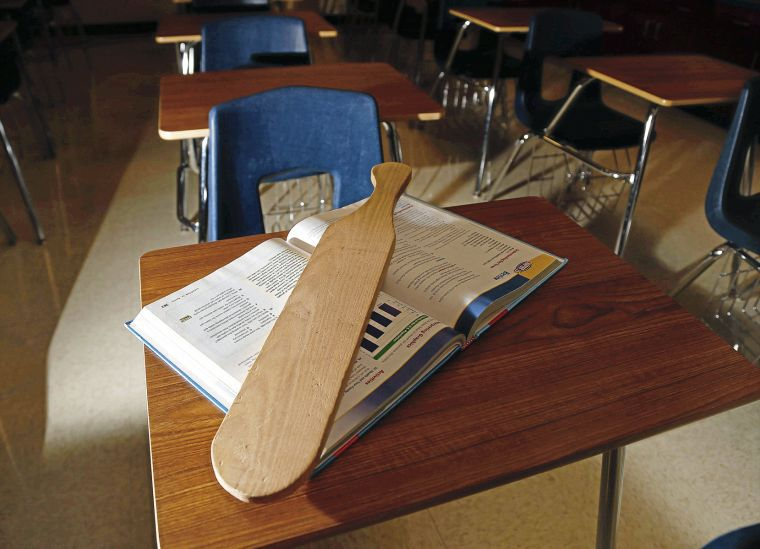Georgia School Allows Paddling
October 2, 2018
The Georgia School of Innovation and the Classics in Hephzibah, Georgia is instating a corporal punishment policy; paddling.
Paddling is defined as striking a child on the backside with a wooden paddle or board. This Georgia school is a kindergarten through 9th grade charter school and has implemented this technique to promote good behavior. Administration sent home consent forms to students so parents were able to decide whether or not they wanted their child to receive this punishment. One third of the forms were returned giving consent for this policy.
The school decided that paddling will happen the third time a child misbehaves. The student will be taken into a separate room, or behind something more private, and they will place their hands on their knees while being struck on the behind. Teachers or staff are only supposed to give three hits each time. This description of paddling is what was written on the consent form that was sent home with students.
Georgia is not the only state or school that is administering a corporal punishment policy like paddling. There are 19 other states, including Alabama, Arizona, Arkansas, Colorado, Florida, Idaho, Indiana, Kansas, Kentucky, Louisiana, Mississippi, Missouri, North Carolina, Oklahoma, South Carolina, Tennessee, Texas, and Wyoming, where corporal punishment is allowed.
According to the Washington Post, the Children’s Defense Fund collected data from 2009 to 2010 and found that 838 students a day on average got paddled in public schools. This translates to 150,840 occurrences a year.
Dan Thornton, assistant principal and athletic director at Pentucket, was very intrigued when he was interviewed about the paddling policy. Thornton went to Haverhill High School and never experienced corporal punishment policies. He did however say that when his father went to Haverhill High School, if they stepped out of line they would have to put their hands out on the table to be smacked with a ruler, stick, etc. “Times have changed huh? That would probably never happen. It was like accepted” Thornton said. Thornton did not believe paddling would work today, but instead he tries to “have effective conversations.”
Anna Dixon, a senior and secretary of the class of 2019 at Pentucket High School, was stunned that this corporal punishment policy was still occuring. “Okay that’s horrible. I feel like that would do serious psychological harm to children.” Dixon said. She went on to say that she feels “like a lot of [her] teachers would not wanna beat us, like maybe a few, but [she] feels like not a lot would want to go to that extent.” Dixon was unaware of what paddling really was and felt as though it was “child abuse.”
Mackenzie Currie, a sophomore at Pentucket High School, was also interviewed on her view of the policy. “It shouldn’t be used in school because it’s like abusing kids, which is just wrong, especially if they’re just here to learn they shouldn’t be abused for like doing something wrong,” Currie said. When asked her opinion on whether or not Pentucket would bring this policy to our school, if it was legal, she said that, “I wanna say no because like our school is so positive I would say, so I feel like everybody would just be completely against abusing kids.”
(Cover Photo Source: Tulsa World)












julia • Oct 22, 2018 at 10:50 am
I liked how you got 3 different perspectives by interviewing 3 different people.
Sarah • Oct 22, 2018 at 10:50 am
interesting lead paragraph